
The view from our lanai in Princeville, Kauai
I spent the past couple of weeks in Hawaii enjoying my first vacation in about 2 1/2 years. Yeah, I know, to all you workaholics out there that’s nothing, but for someone who is used to regularly vacationing for two weeks each year, it was a long haul. My wife and I own a couple of timeshare weeks, and one of the best things about those “use it or lose it” weeks is that they encourage us to get away for two weeks each year.
While on vacation, one of our favorite things to do is relax and read. Some of our friends think we’re nuts to go to Hawaii and read, but that isn’t all we do. We also get out and hike, visit the beach, explore the island, and do some of the touristy things like ride a Zodiak to the Na Pali coast. But we don’t feel it’s necessary to fill every moment of every day with expensive activities. We love having some “down time” too. That’s when we settle in on the lanai with a tropical beverage at our side and read to the soundtrack of tropical birds flitting by.
I read about a dozen books on this trip, and I had plans to review them all. But I’ve learned something about bulk reading: I have to make notes or write the review right after I finish the book or I’ll forget most of my impressions from the reading experience. It’s not a problem as long as I still have access to the book, but several of the books I read were from the Princeville library (you can get a temporary library card in Hawaii for $10), and others were from the resort’s book exchange. I still have the ones I read on my Kindle, and those will get reviewed.
I also spent some time thinking (perhaps over-thinking) about what makes a good review. I’ve noticed that writers often write a review as if it were a critique. They try to make suggestions to the author about how the book might be improved. After some consideration, I reached the conclusion that critique does not belong in a review: it belongs in a critique. And there’s a difference. A critique is for writers, and a review is for readers.
So what does make for a good review? To answer that, you have to consider the purpose of a review. It seems to me that the purpose of a review is to help other readers decide whether or not they might like to read the book.
Over the past year or more, I’ve communed with a lot of writers and readers. I’ve gotten to know some of what makes them happy and unhappy in a reading experience. Although those criteria vary from person to person (what one reader loves, another hates), the criteria fall into fairly consistent categories. I think those categories are a good place to start.
Also, I’ve learned that the emotional experience of a book is what makes it great or not great. The emotional experience is what makes you hate to put the book down and what makes you think back on the story long after you’ve finished it. Ultimately, it’s what makes you pick up that book and read it again. So, a review should include your feelings about the book as much as (or more than) your analysis of it.
When I sat down and created a strategy for my own reviews, I considered what others had told me about their reasons for loving or hating a book. I came up with the following possible review points (in no particular order):
- Plot: I don’t think any review should include spoilers, but it does make sense to say how you feel about the main plot and sub-plots of the story. I personally like to know if a book that is part of a series has a cliff-hanger ending or is incomplete. If it does end abruptly, I’ll want to make sure I have access to all of the volumes before I start. That happened to me when I read Dragon Keeper by Robin Hobb while in Hawaii. The book ends in the most heinous “to be continued” way. When I reached the last page, I wanted to throw the book across the room.
- Story world: For fantasy books, the story world can make or break the reading experience. Some readers like dark, brooding environments while others prefer butterflies and rainbows. In some books, the story world is virtually a character in itself.
- Characters: Most readers appreciate well-developed characters, but how deeply the characters are developed and what personalities are revealed can really have an impact on the reading experience.
- Formatting: Some readers get uptight about books that don’t conform to typographical design standards, or that have blatant formatting errors (as is often found in auto-converted ebooks).
- Writing: Readers either like your writing style or they don’t. Some readers hate flowery description. Some hate reading books written in mixed first person and third. Word choice or the use of adjectives and adverbs can be a real obstacle. But again, I think this kind of information should be presented as your reaction to the writing, not as advice to the author.
- Editing: Self-published authors in particular are heavily criticized on the subject of editing, although the quality of traditionally-published books has dropped considerably in the past decade as well. Most readers can get over a typo here and there, but grammar errors and poor sentence structure can be incendiary.
My next book review is going to be a test case for my shiny new review strategy. My author friend Christopher Kellen and his book Sorcerer’s Code is the winner of this honor, dubious as it may be.
*****
How do you write reviews? Do you have a particular approach? What kind of information do you like to include?

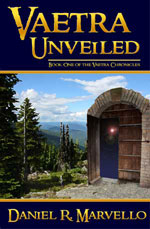
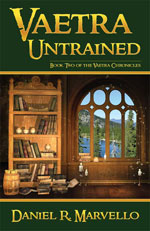
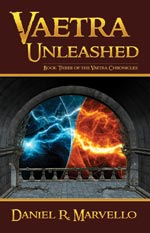
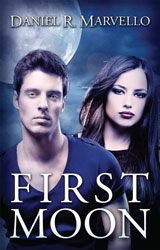
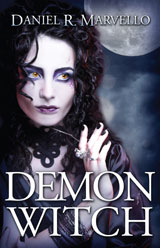
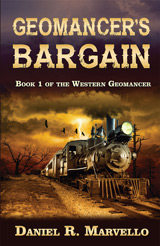
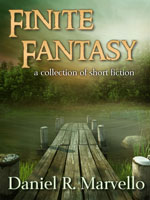
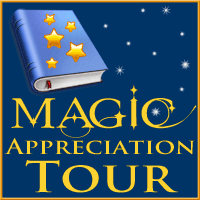

One thing I like to include is a decent picture of the cover (without or without title). They tend to influence whether I read a novel. A striking cover will work as a come-hither for me. Along with the picture I generally try to include a link to the artist and I will sometimes say something about it.
Other than that I think my reviews tend to be fairly character-focused. I seldom include the blurb nowadays. I’ve landed on keeping my reviews very personal.
Good luck on your project.
Hi Lise! Thanks for commenting and for the good luck wish.
You have an interesting approach. I don’t think I’ve ever seen a review that included a picture of the cover or a link to the artist. That’s not a bad idea for people who like to know something about an author before reading his/her books.
I know what you mean about including the blurb. That seems redundant to me. The blurb is readily available in the book listing, so there’s no point including it in the review, IMO.
Character-focused reviews are my favorite kind because they usually give me a feel for the tone of the story without giving away spoilers.
It sounds to me like I’d enjoy reading your reviews. 🙂